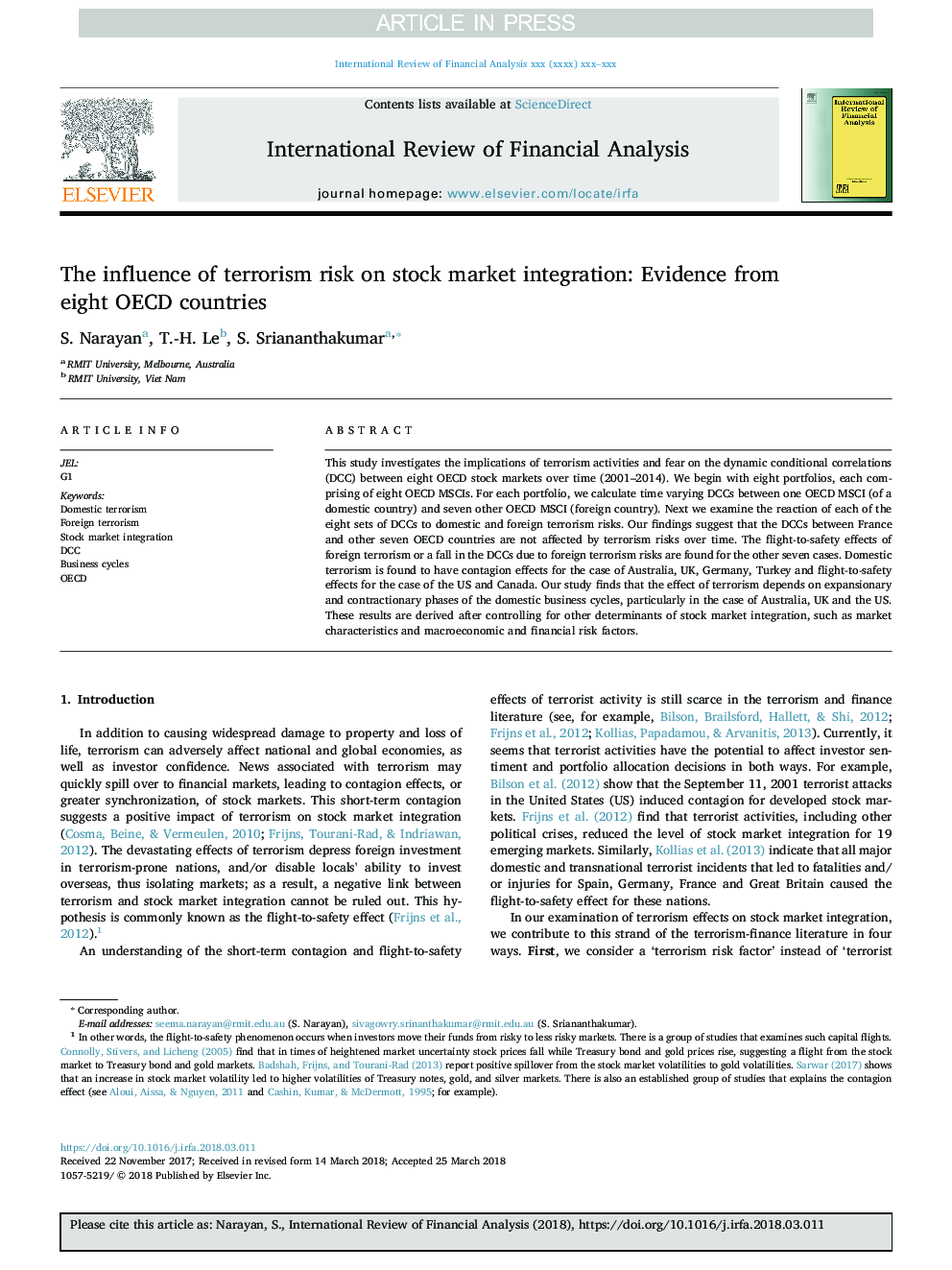| Article ID | Journal | Published Year | Pages | File Type |
|---|---|---|---|---|
| 7355633 | International Review of Financial Analysis | 2018 | 13 Pages |
Abstract
This study investigates the implications of terrorism activities and fear on the dynamic conditional correlations (DCC) between eight OECD stock markets over time (2001-2014). We begin with eight portfolios, each comprising of eight OECD MSCIs. For each portfolio, we calculate time varying DCCs between one OECD MSCI (of a domestic country) and seven other OECD MSCI (foreign country). Next we examine the reaction of each of the eight sets of DCCs to domestic and foreign terrorism risks. Our findings suggest that the DCCs between France and other seven OECD countries are not affected by terrorism risks over time. The flight-to-safety effects of foreign terrorism or a fall in the DCCs due to foreign terrorism risks are found for the other seven cases. Domestic terrorism is found to have contagion effects for the case of Australia, UK, Germany, Turkey and flight-to-safety effects for the case of the US and Canada. Our study finds that the effect of terrorism depends on expansionary and contractionary phases of the domestic business cycles, particularly in the case of Australia, UK and the US. These results are derived after controlling for other determinants of stock market integration, such as market characteristics and macroeconomic and financial risk factors.
Related Topics
Social Sciences and Humanities
Economics, Econometrics and Finance
Economics and Econometrics
Authors
S. Narayan, T.-H. Le, S. Sriananthakumar,
